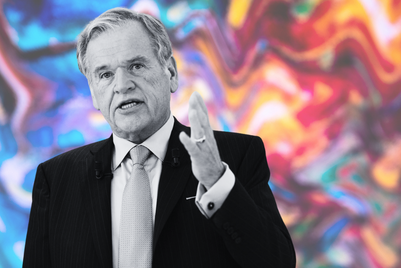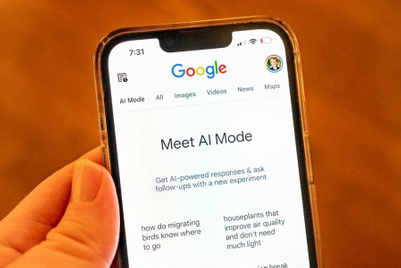+(1).jpg&h=570&w=855&q=100&v=20250320&c=1)
It’s hard to believe it’s been over two years since we celebrated creativity at Cannes Lions together in person.
When the pandemic first began, I was so inspired by the ingenuity of our people who had to quickly pivot to remote work and rethink the creative process. Collaboration quickly became Teams calls rather than face-to-face meetings, and the questions became something like: How can we make an ad for a client when we can’t be in person for a shoot? How can we create a memorable new-business pitch when we’re not physically in the room with a client? These restraints resulted in innovative creative solutions that delivered remarkable outcomes.
Through all obstacles, the power of our creativity was a constant. And when the shift to digital was expedited, the premium on creative ideas fuelled by data-driven insights has never been greater. It proved something we already knew – creativity is no longer limited to ad campaigns or conventional “creative” disciplines. Creativity plays a role throughout the entire brand experience.
Exceptional creativity, in turn, drives exceptional outcomes for clients. It is more memorable, longer lasting, works with less media spend and has a positive impact on culture. That’s also true for our non-profit work where outstanding creativity contributes to making the world a better place.
Omnicom was founded by creatives and it is part of our DNA. That is why investing in our talent and world-class agency brands matters as much as it does. We have always been focused on attracting and retaining the best creative talent in the business. Today, people want to be part of a culture focused on the future, not the past, and expect a working environment that is flexible, modern, diverse, inclusive, collaborative, respectful and charged with positivity. This is especially true now when the war for talent is fierce. Within the past year, we expanded our investments in learning and career development programmes; implemented agile and flexible work arrangements for the post-Covid era; and delivered competitive benefits and compensation programmes.
Our agencies across all disciplines see creativity as a core asset that must be nurtured and maintained. It’s not something you can buy. Our leadership across the organisation makes it clear that creativity is important – not by writing it into a mission statement but by living it day in and day out.
I am a firm believer that culture will eat strategy for breakfast any day of the week. It’s our strong culture of creativity, flexibility and empathy that supports everything we do for our people, clients and communities. When we invest in our culture, we invest in creativity that will lead to more new business, better outcomes for clients and more gold Lions.
So, despite the hiatus, people and their creativity are still the backbone of our industry. I’m excited to once again be inspired by the best work from around the globe and to congratulate, in person, the teams behind it. It is what makes the trip to Cannes worth it year after year.
Publishing tomorrow (June 15): Wendy Clark, global chief executive, Dentsu International





.jpg&h=334&w=500&q=100&v=20250320&c=1)
.jpg&h=334&w=500&q=100&v=20250320&c=1)
.jpg&h=334&w=500&q=100&v=20250320&c=1)
.jpg&h=334&w=500&q=100&v=20250320&c=1)
.jpg&h=334&w=500&q=100&v=20250320&c=1)




.jpg&h=268&w=401&q=100&v=20250320&c=1)
.jpg&h=268&w=401&q=100&v=20250320&c=1)

.jpg&h=268&w=401&q=100&v=20250320&c=1)

.jpg&h=268&w=401&q=100&v=20250320&c=1)
.jpg&h=268&w=401&q=100&v=20250320&c=1)